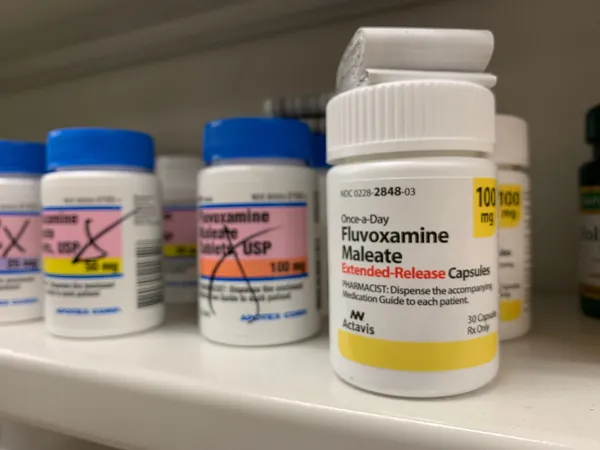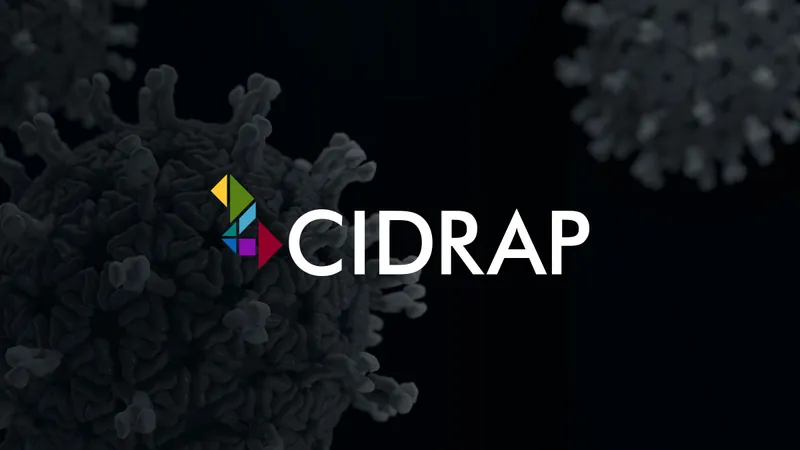
Fluvoxamine Proves Ineffective for Reducing COVID-19 Symptom Duration in Outpatients - What This Means for Future Treatments!
2024-12-08
Author: Sarah
In a striking revelation for ongoing efforts to find effective treatments for COVID-19, a recent study published in JAMA has concluded that higher doses of fluvoxamine (Luvox), a commonly used antidepressant with anti-inflammatory properties, do not significantly shorten the duration of COVID-19 symptoms in mild to moderate outpatient cases. This finding raises crucial questions about the effectiveness of repurposed medications for tackling the virus.
The double-blind, randomized, placebo-controlled trial titled 'ACTIV-6' aimed to assess fluvoxamine's efficacy specifically on sustained recovery, defined as three consecutive days without symptoms. Despite hopes for a breakthrough, the research team concluded that there was no discernable benefit from the fluvoxamine treatment compared to the placebo group.
"ACTIV-6 is the only trial with a primary outcome focused on patient-reported sustained recovery, and our findings are clear—fluvoxamine does not help in this regard," said the researchers. Interestingly, they did note a secondary trend indicating that events involving death or healthcare use were one-third lower among patients taking fluvoxamine, but this difference did not reach the level of clinical significance to draw strong conclusions about its effectiveness.
Fluvoxamine is part of the selective serotonin reuptake inhibitors (SSRIs) category and is traditionally used to treat obsessive-compulsive disorder (OCD). It garnered attention with the hypothesis that it could mitigate the host inflammatory response in COVID-19 patients, theoretically preventing the progression to severe disease.
In this extensive trial, which included 1,208 participants aged 30 and older with confirmed COVID-19 infections, the study design took a commendable approach by incorporating a wide range of healthcare and community settings. Participants were randomly assigned to receive either fluvoxamine (50 mg twice daily on the first day, followed by 100 mg twice daily for the subsequent 12 days) or a placebo, making the trial one of the more inclusive studies of its kind.
However, the results revealed that both groups had a median recovery time of 10 days, indicating no significant difference. Notably, a significant portion of the participants were from diverse backgrounds, with 72.7% identifying as White and nearly half as Hispanic or Latino. Yet, comorbid conditions like obesity (36.1%) and hypertension (25.8%) were prevalent.
Despite the lack of favorable results, researchers identified several limitations to their study that should be noted. The relatively low incidence of clinical events during the ongoing stages of the pandemic and the remote study design posed challenges that made it difficult to assess the complete treatment effects.
So what does this mean for patients and ongoing COVID-19 treatment research? As researchers continue to explore other potential remedies, the findings underscore the importance of rigorous testing, even for established medications. The reassuring takeaway is that patients have not seen an uptick in severe health outcomes or hospitalizations, but this study highlights the necessity for more targeted and effective therapeutic approaches.
As the search for COVID-19 treatments persists, this study serves as a call for further investigation into viable options that can truly make a difference. Stay tuned as we continue to follow breaking news in pandemic treatments and the evolving landscape of healthcare solutions!





 Brasil (PT)
Brasil (PT)
 Canada (EN)
Canada (EN)
 Chile (ES)
Chile (ES)
 España (ES)
España (ES)
 France (FR)
France (FR)
 Hong Kong (EN)
Hong Kong (EN)
 Italia (IT)
Italia (IT)
 日本 (JA)
日本 (JA)
 Magyarország (HU)
Magyarország (HU)
 Norge (NO)
Norge (NO)
 Polska (PL)
Polska (PL)
 Schweiz (DE)
Schweiz (DE)
 Singapore (EN)
Singapore (EN)
 Sverige (SV)
Sverige (SV)
 Suomi (FI)
Suomi (FI)
 Türkiye (TR)
Türkiye (TR)